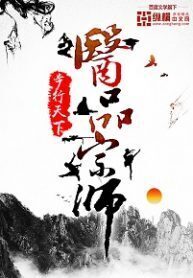Chapter 158:
Chapter 158
Now, the downfall of Nazi Germany and the liberation of Warsaw are near. In order to achieve Polands independence in this situation
The high-ranking official of the Polish government-in-exile was giving a passionate speech. But few people were listening with interest.
What does the exile exile exile government have to say that is useful to us?
People jokingly called the government-in-exile the exile exile exile government.
After the partition of Poland by Germany and the Soviet Union, they fled to France.
When France was occupied by Germany in just six weeks, they fled to Britain.
When Britain was also under the threat of the Nazis, they fled to Canada with the British government.
In the process of running away and looking for a way to survive, they lost their base, most of their supporters, and their troops.
The troops that failed to escape from France to Britain were massacred by the Nazis brutal retaliation.
The Soviet Union forced the Polish soldiers they had captured to switch sides and formed a 200,000-strong Polish field army led by the Polish Communist Party.
The free Polish army, which had only two divisions, was literally powerless.
We appreciate your words.
The bureaucrats of the US State Department replied dryly.
The US-British coalition forces were not even able to recover the British mainland.
They had no interest in the small piece of land in Poland, thousands of kilometers away to the east.
We request weapons to arm our free Polish army
That would be difficult.
The US was well aware of the situation.
There were four great powers on the world map that opposed the Berlin-Tokyo axis.
The US, the Soviet Union, Britain, and China.
And those four great powers were not in equal positions.
Britain had lost its mainland and was only involved in sporadic uprisings or barely saved its fleet to face the Kriegsmarine and the Japanese Imperial Combined Fleet.
China was also struggling to fend off the Japanese army and was floundering.
The US army lieutenant general Stilwell, who was sent to the Republic of China, cursed Chiang Kai-shek every day.
He said that Chiang and his regime were corrupt and more interested in the material support from the US than the war against Japan.
The only great power and ally that was equal to the US was the Soviet Union.
It sacrificed millions of lives and fought against the whole of Europe, pushing back Germany, and now declared that it would punish Japan as well.
The best ally.
Would the US support Poland, even if it offended the ally?
Please consult with the Soviet delegation on this issue. They are in charge of the issue of supporting the Warsaw Uprising of the Polish government.
I understand.
The bureaucrats of the government-in-exile left with their shoulders slumped.
The US State Departments Eastern European affairs officer wrote down in his report.
[The matter of canceling the recognition of the Polish government-in-exile and recognizing the new Polish Peoples Government]
***
The Soviet Union and Poland had a historical enmity that made it hard to say they were on good terms, even as a lip service.
Russia had divided and ruled Poland since the imperial era.
After the Russian Empire collapsed, Poland invaded the newly formed Soviet Union in the Red-White Civil War, trying to reclaim the territory of the former Polish-Lithuanian Commonwealth.
The Soviet Union also counterattacked and advanced to the outskirts of Warsaw, but retreated and had to give up some of the territory of Belarus and Lithuania.
The Soviet Union, sharpening its sword, then conspired with Germany and divided Poland again.
It had little effect on eliminating the German soldiers who had built layers of trenches and bunkers and hunkered down, but it was quite effective in blocking the movement of the German armys mobile forces.
Also, thousands of German soldiers were already suffering from shell shock.
The Soviet-style barrage fire was perfect for stimulating their psychological trauma and eroding their morale.
There were other weapons prepared to break through the trenches.
Tanks! Retreat! Damn it.
In places where the river was narrow, pontoon bridges were installed several times.
The upper part of the Vistula River had already been occupied by the Soviet army.
The Soviet army, which had half-assembled the bridge in the occupied part, rode a boat down the river and installed the bridge in front of the waiting armored unit.
The German soldiers, who trusted the natural defense of the river and poured machine gun bullets and shelling, started to run away as soon as the armored units attack route appeared.
No, what are our artillery doing? Damn it
They must be fighting with the artillery over there
Of course, one shot of the shell would have shattered the bridge. Even if it hit slightly, it could have flipped it over.
But they didnt have the luxury of the artillery.
The trumpet sound from the sky was now the sound of the bear, not the Stuka, and they attacked the artillery as soon as they saw the flash of the artillery, like a bear wandering the forest looking for corpses.
Ugh!
Tatatat, tatatat tatatat.
The small bullets that burst out of the cluster bombs were enough to slaughter the tractor that was towing the gun, the gun itself, or the troops that operated the gun.
Rather, at this point, the bridge looked like a bait, and the Soviet aircraft relentlessly attacked the German ground artillery.
And meanwhile, the Soviet armored unit advanced fiercely.
They broke through the defense line and headed west, west.
The German troops that were stuck in the trenches were cleared by the machine guns and high-explosive shells mounted on the tanks.
One, two three!
Bang! Bang! A sharp roar and the German armys anti-tank gun that was ambushed spewed fire. But the T-34 tank that happened to be turning the turret bounced off the shell.
The T-34 tank had a new design of a hemispherical turret, which made it difficult to penetrate at any angle.
11 oclock, distance 500!
High-explosive shell, load and fire immediately!
The infantry who tried to avoid the tanks counterattack by towing the heavy anti-tank gun were eventually sacrificed by the 100mm high-explosive shell.
The Soviet rifleman, who was startled by the sound of the anti-tank gun hitting, cheered when the tank was scratched.
Ura! Ura!
The tank is safe! Assault!
The German infantry, who hoped that the anti-tank gun would blow up the tank and sweep away the surrounding riflemen, had to retreat.
The German armys specialty, the infantry cooperation, was now better used by the Soviet army.
The German army wanted to use the infantry cooperation, but they had no way to show off their sophisticated tactics because the air force and artillery were smashed together.
On top of that, the second most morale-boosting unit in the Soviet army, the Polish field army, added a fierce offensive that did not spare their bodies.
Retreat! Retreat!
Head to the next defense line!
Of course, Germany, under the command of Model, built layers of defensive positions and fought the maximum delay.
If this defense line is broken, then the next defense line, and if that defense line is broken, then the next defense line.
In the meantime, the Soviet armored unit that was too deep in the attack due to the sense of honor or underestimating the enemy was counter-encircled and destroyed, becoming the kill mark of the German tank.
The offensive and counterattack, the siege and the armored battle, the street fighting between the infantry, the complex battle that was beyond description, was fought over Warsaw.
While the German command was squeezing out the last of its capabilities and putting them into action, the Soviet army pulled out one of their trump cards.







